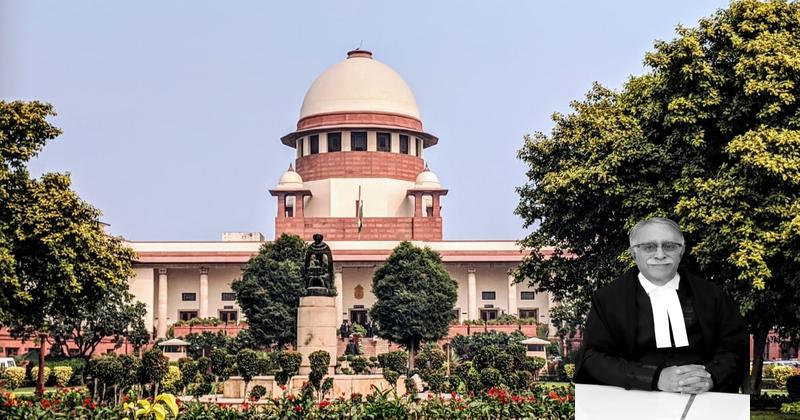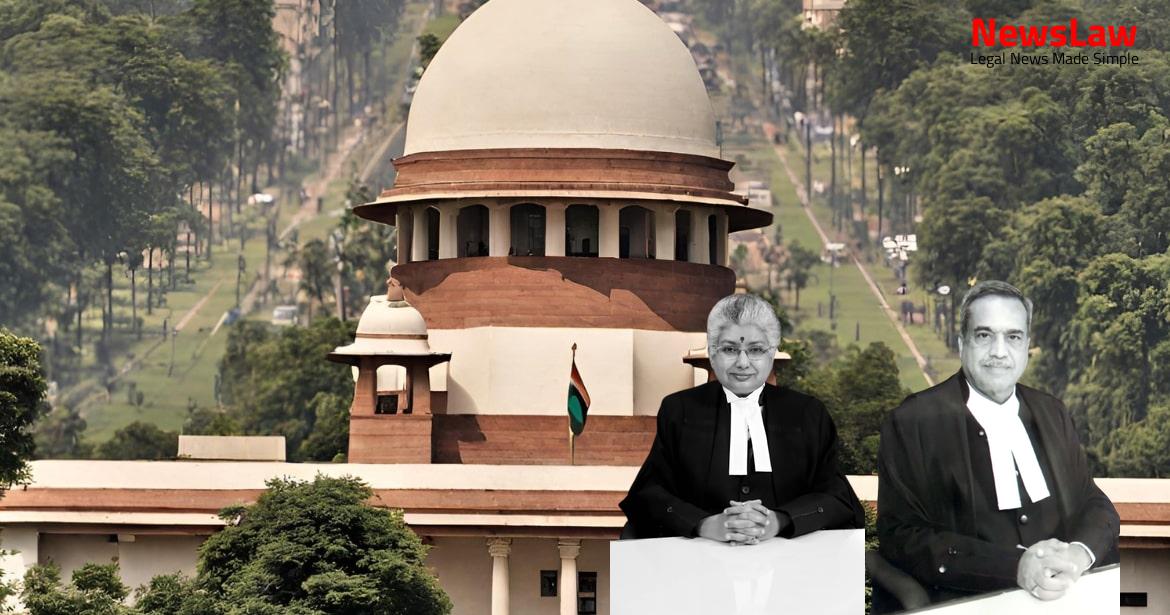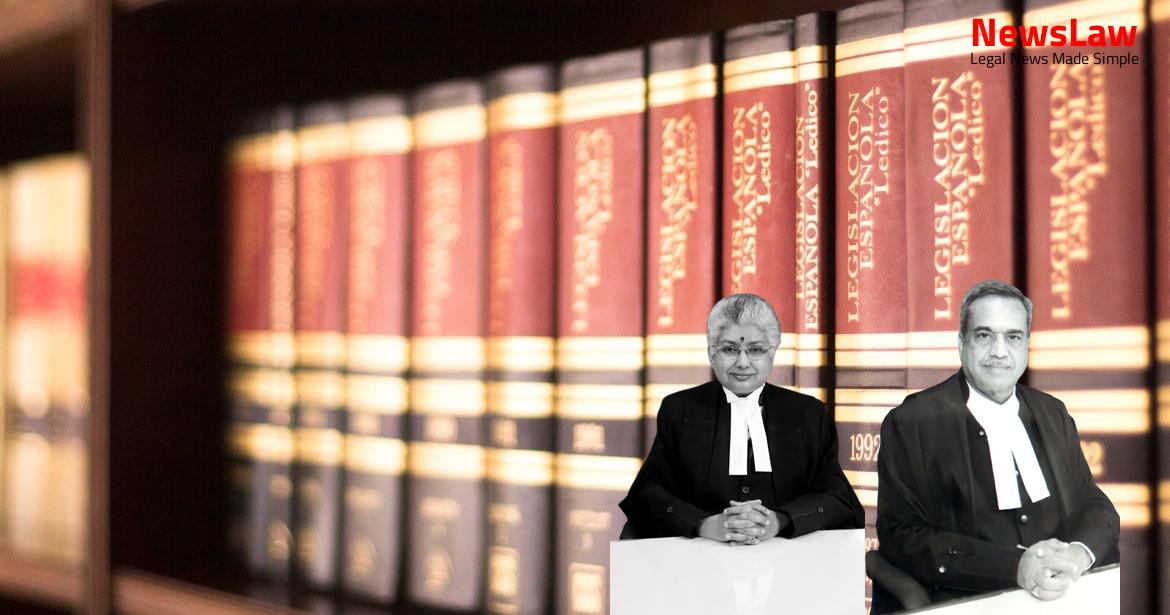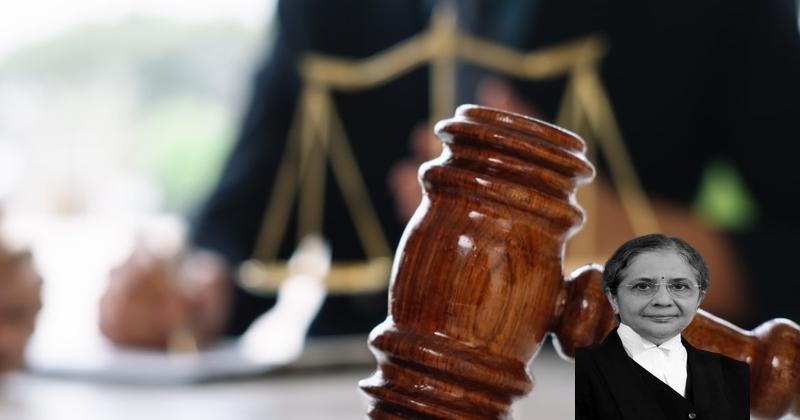Contingently, whether the Appellant is entitled to refund of the amount of difference between the amounts payable for 23000 KVA and 10000 KVA which, have been paid under protest? In 1994, the present management approached the Board with a plan for revival, pursuant to which a fresh scheme with certain additional concessions was issued in terms of the Government Office Memoranda bearing numbers 165 dated 21 December 1994 and 37, dated 10 February, 1995 respectively. The Appellant then made a further request on 24 December, 2001, to reduce the contracted maximum demand to 10000 KVA with effect from 27 January, 2002, along with an offer to pay the one-time charge payable on effecting such a reduction. Having referred to the contents of the clauses, the High Court held that it was not open for the Appellant to pay lesser 5 charges than that of the contracted demand in absence of a sanction in respect thereof by the board. The MAXIMU 1999 Agreement acknowledging the changed scenario vis–vis the allocation and the requirement of the supply of electricity, more so, in view of the policy framed by the 6 Central Government encouraging the industrial units to have captive power plants, while reducing the total energy quota to a maximum of 23000 KVA inter alia contained the following terms: “LOADM DEMAND NOW IT HEREBY DECLARED AND AGREED AS FOLLOWS: Subject to the provisions hereinafter contained, the Board supply and the consumer shall take from the Board electrical energy for a maximum demand not exceeding 23000 KVA which shall be in contracted load for its exclusive use for the purpose above mentioned at the premises of its factory at P.N.
From the date this agreement comes into force the consumer, shall be bound by and shall pay to the Board, maximum demand charges, energy charges, surcharges, meter rent and other charges, if any, in accordance with the tariff applicable and the terms and conditions of Supply of Electricity notified by the Board from time to time for the appropriate class of consumers to which it belongs. This agreement shall remain in force for a period of five years from the date of its commencement as defined in clause 2 and shall remain in force until it is terminated by either party as provided in the conditions of supply.”
Pursuant thereto, the Appellant finding the requirement of supply of electricity from the Respondents to be reduced, by a communication dated 24 December 2001 forwarded a request for reduction of maximum demand of supply of electricity to 10000 KVA. One time payment of twice the demand charges at the notified rate per KVA for each KVA of the demand reduced as per the clause 22.07 of terms and conditions of supply before effecting reduction in demand.
It being a matter of record that eventually and notwithstanding the pending lis, inter se the parties, by way of its own right, the Respondents by taking a conscious decision revised the 1999 agreement reducing the maximum required demand from 23000 KVA to 10000 KVA. Vide letter dated 30 January, 2002 it was informed to the Appellants that the assumption in respect of the reduction being effectuated from 27 January, 2002 was incorrect and the same would be subject to certain conditions. Revised bills were requested in line with the interim order of the High Court dated 28 November,2002, in terms of letter dated 4 June, 2002, but the same does not appear from the record to have been responded to.
The effect of this Clause, as per the Respondents, is that the request for a reduction in demand maximum as made by the Appellant, does not acquire any status as till the time such request is processed by the Board, and a decision allowing such reduction is taken. The Respondents contend that the Appellant has unilaterally amended the contract to reduce the maximum demand to 10000 KVA when no such decision stands taken by them.
Also Read: https://newslaw.in/supreme-court/extension-of-benefit-of-doubt-in-criminal-convictions/
The contention that others similar agreements have been processed by the Respondents with promptitude and it is only the Appellant whose application was singled out, was rejected by the High Court on the ground that even the fresh agreement entered into by the parties in July 2004 specifically indicates that the consumer shall not affect any 14 change in the maximum demand or the contracted demand and, that the supplemental agreement is subject to and in addition to the terms of the subsisting 1999 agreement. It is true that the agreement states that the consumer, (Appellant herein) is bound to pay such maximum demand amount irrespective of utilization and also that such an agreement will be in effect for a period of five years but in the considered view of this Court, the Board cannot be allowed to take refuge of these clauses while the company on the other side is saddled with heavy cost in the interregnum of such decision.
While that may be true, 16 it does not supply reason to the act of keeping an application pending for such a long period of time. While Article 14 of the Constitution of India permits a reasonable classification having a rational nexus to the object sought to be achieved, it does not permit the power of pick and choose arbitrarily out of several persons falling in the same category. The said factor singularly is sufficient to bring into any transaction the minimal requirements of public law, to which the State is a party.
The State cannot be attributed the split personality of Dr Jekyll and Mr Hyde in the contractual field so as to impress on it all the characteristics of the State at the threshold while making a contract requiring it to fulfil the obligation of Article 14 of the Constitution and thereafter permitting it to cast off its garb of State to adorn the new robe of a private body during the subsistence of the contract enabling it to act arbitrarily subject only to the contractual obligations and remedies flowing from it. This case hinges on what would be construed to be ‘reasonable time’ to consider any application for reduction in 19 maximum demand, by the authorities.
Keeping in view the above-stated well established principles that State action irrespective of being in the contractual realm must abide by Article 14, and that a) after passage of a considerable period of time, in July, 2004 the reduction to 10000 KVA was agreed to and a new agreement to that effect was entered into; b) irrespective of the amount of reduction in KVA sought other applications were considered within a reasonable period of time; c) no reason has been put forth for keeping such application pending; d) that the Appellant duly and repeatedly followed up with the authorities to effectuate such reduction; and e) the Appellant has been unjustifiably asked to furnish costs for unutilized electricity which, in any case should not have extended beyond the period of six months (considering ‘reasonable period’ to consider an application, to be so), for a period much larger thereto, rendering such action unquestionably unreasonable and arbitrary.
Also Read: https://newslaw.in/supreme-court/vicarious-liability-under-section-34-of-ipc/
We direct the Respondent namely The Tamil Nadu Electricity Board to return the amount as may be calculated and verified, paid by the Appellant to it for 13000 KVA, in excess to its request of maximum sanctioned demand of 10000 KVA (23000-10000 = 13000 KVA). Clarifying that the period is to 22 commence from 23 June, 2002 till 1 July, 2004 (both inclusive); interest applicable thereupon would be simple in nature @ 6 per cent per annum.
Case Title: THE MADRAS ALUMINIUM CO. LTD. Vs. THE TAMIL NADU ELECTRICITY BOARD AND ANR. (2023INSC607)
Case Number: C.A. No.-007224-007226 / 2009



